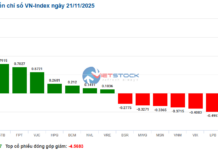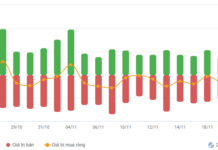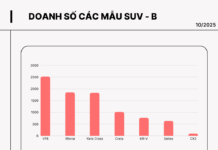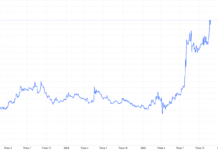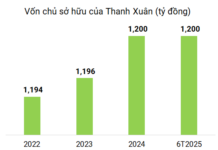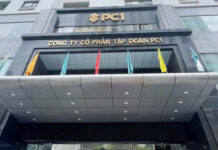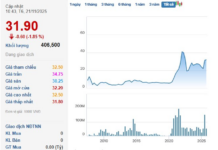Real Estate Debt “Ballooning”
Vietnam-based real estate companies are facing significant financial challenges, as evident from the recent financial reports of several prominent firms. Tien Phuoc Group, for instance, reported a net loss of over VND 181 billion in the first half of 2024, with a similar trend observed in 2023. Their current liabilities exceed owner’s equity by a significant margin, indicating a fragile financial position.
Danh Khoi Group’s financial statements for the same period revealed a post-tax loss of over VND 10 billion, a sharp decline from the previous year’s profit of VND 7 billion. Additionally, the group is facing issues with bond maturity. As of June 30, their short-term and long-term financial debts amounted to over VND 342 billion and VND 46 billion, respectively, with a significant portion attributed to bond debts.
The financial woes are not isolated to these two companies. Many other real estate enterprises, as indicated by their audited financial statements, have either slipped into losses or witnessed a deterioration in their financial performance. This includes Saigon Real Estate, which reported a loss of VND 23 billion post-audit, contrary to their initially reported profit of VND 2.4 billion.

Despite their substantial assets, many real estate companies remain burdened by growing debts.
The situation is further exacerbated by challenges in the real estate market, including a supply-demand imbalance, legal complexities, and a decline in customer confidence, resulting in reduced liquidity and increased inventory.
Mr. Nguyen Xuan Quang, Chairman of Nam Long Investment Corporation, attributes these challenges to lingering debt issues and bond maturity concerns. He emphasizes that while the market has shown positive signs, it is still in the recovery phase and far from achieving significant breakthroughs.
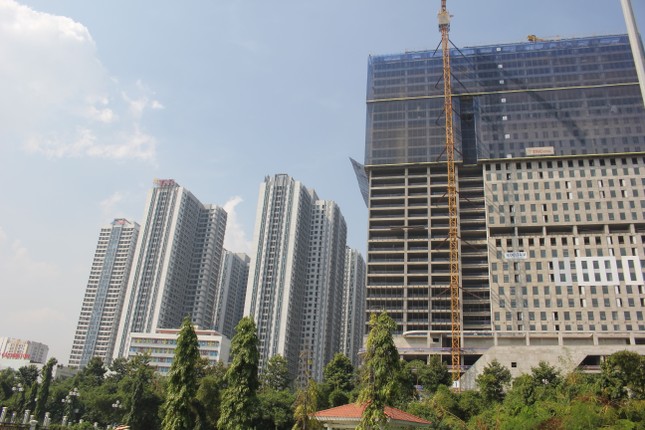
The real estate market and businesses are in a recovery phase, gradually rising from the bottom.
Experts, including TS Nguyen Duy Phuong, attribute the challenges not solely to high financial leverage but also to the low capacity of businesses to absorb capital. The pandemic’s impact has reduced liquidity and narrowed profit margins, leading to lower capital requirements.
The road to recovery for the real estate market and businesses is expected to be gradual, addressing issues related to social housing shortages, legal complexities, and market confidence.
Sure, I can assist you with that.
“Mai Linh Group: Chairman Ho Huy’s Struggling Enterprise Plagued by Debt and Insurance Woes”
As of the end of 2023, Mai Linh Group recorded accumulated losses of over VND 1,300 billion, exceeding equity. In addition, the enterprise of Chairman Ho Huy also owes 10 months’ worth of insurance for its employees.

